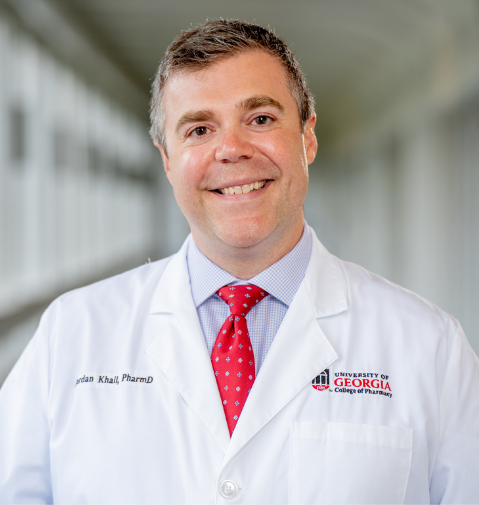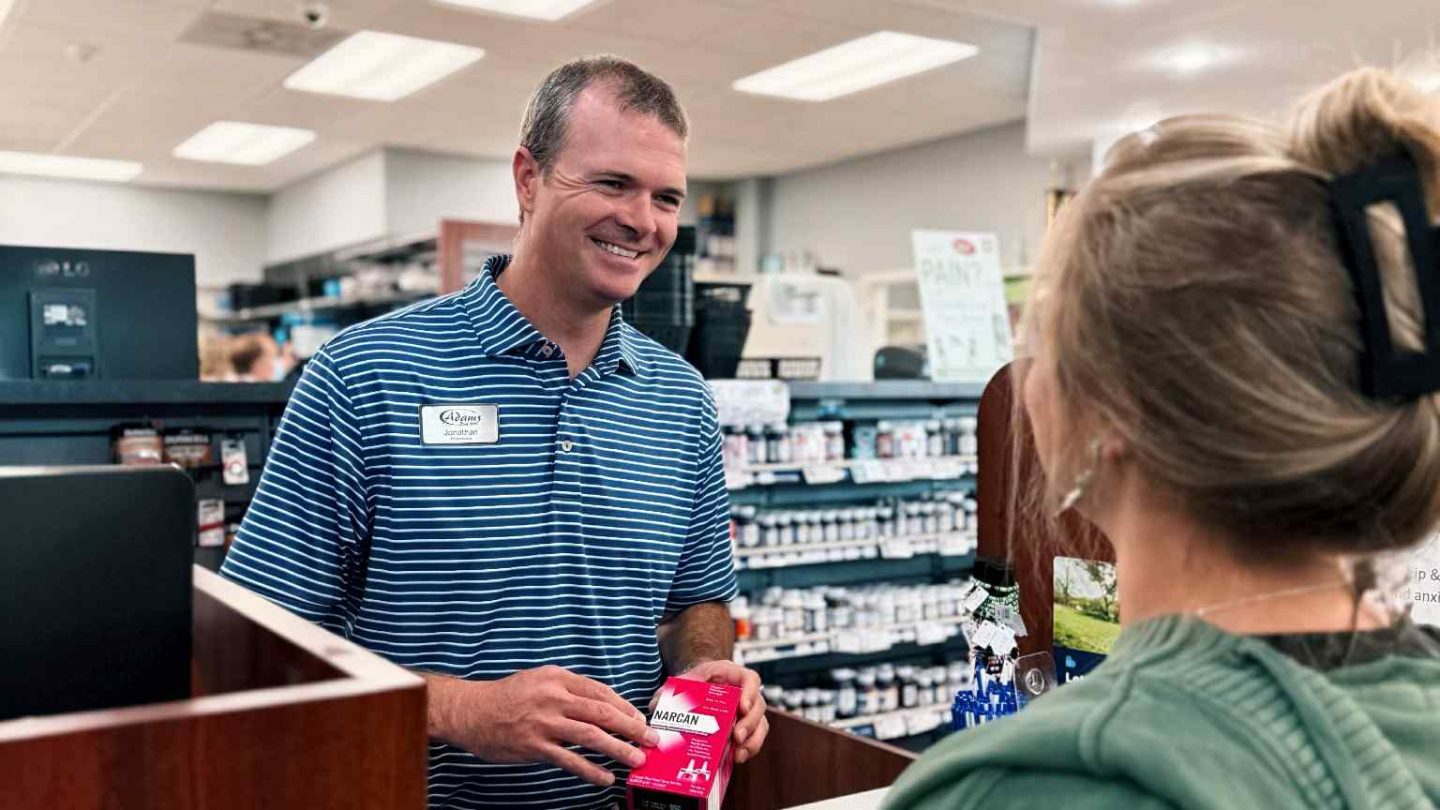Significant progress has been made on a project to address the opioid epidemic in rural Georgia, thanks to the efforts of a team of faculty members at the UGA College of Pharmacy and a $1.2 million grant from the Georgia Opioid Crisis Abatement Trust.
The grant was one of 24 awarded to the College of Pharmacy in fiscal year 2025. Research dollars the College received from grants and contracts totaled $6,237,771 in FY25, up 19% from the previous year. Funded projects ranged from breast cancer research to drug development to dietary approaches for heart health, and more.
In December 2024, the College was awarded the opioid grant, which is allowing College faculty members to equip pharmacists in smaller communities with the resources they need to care for individuals at risk for opioid overdose. Specifically, the team is partnering with at least 50—and up to 100 or more—rural pharmacists to provide education, support, and compensation for the distribution of naloxone, a life-saving medication that rapidly reverses the effects of an opioid overdose, while training these healthcare providers with the skills they need to connect patients with local lifesaving community resources. Further, the team will generate data to develop future solutions to this health crisis.
Already, the UGA team has established pilot programs in five of the six health districts in Georgia, including Lovvorn Drug Company in Haralson County; Adams Drug Store in Crisp County; Bainbridge Pharmacy in Decatur County; Barney’s Pharmacy Thomson in McDuffie County; and Misty’s Pharmacy in Wayne County. Initial county selection focused on those areas with higher rates of opioid overdose deaths and emergency room visits due to opioid overdose. The team is working with other rural pharmacists across the state to create additional opioid prevention programs.
Dr. Jonathan Sinyard ‘09 is the owner of Adams Drug Store in Cordele, GA and is the past president of the Georgia Pharmacy Association. “We are proud to partner with the UGA College of Pharmacy to get naloxone into the hands of those that need it most. This program will allow our pharmacists to practice at the top of their license and literally save lives!”

Dr. Jordan Khail
Jordan Khail, a faculty member in the Department of Clinical and Administrative Pharmacy (CAP) and the lead in this two-year pilot program, said opioid statistics are alarming. “Since 2000, opioid-related drug overdoses have taken the lives of more than 650,000 individuals in the U.S. In Georgia, the effects of opioids are even more staggering. The Georgia Department of Public Health reports that drug overdose deaths in the state increased by about 56% from 2019-2021 and was the leading cause of death among young Georgians.”
Khail added that most drug overdose mortalities involve opioids—particularly illicitly manufactured fentanyl. In fact, deaths from fentanyl use increased by 218% from 2019-2021 in Georgia. The crisis worsens in rural populations due to the lack of accessibility of healthcare and treatment options.
In 2021, a nationwide settlement was reached to resolve opioids litigation brought by states and local political divisions against the three largest pharmaceutical distributors, McKesson, Cardinal Health, and AmerisourceBergen, along with Janssen Pharmaceuticals, Inc. and its parent company, Johnson & Johnson. Collectively, the settlements provided $26 billion nationwide to combat the epidemic. Georgia received approximately $638 million from the settlement agreement, which is managed and distributed by the state’s Department of Behavioral Health and Developmental Disabilities.
Colleagues from the College of Pharmacy working with Khail on the project include Dr. Smita Rawal, Clinical Assistant Professor, and Dr. Henry Young, Kroger professor and CAP Department Head. The team is collaborating with the Georgia Pharmacy Association (GPhA) to forge working relationships with rural community pharmacists across the state.
Added Khail, “By equipping community pharmacists with the tools to offer life-saving interventions, this project aims to reduce the stigma surrounding addiction and connect individuals to the resources they need. In addition, collaborating with the Georgia Pharmacy Association and local community stakeholders will create networks of harm-reduction hubs, making essential support and education more accessible to those who need it most. This project is just the beginning. It has the potential to transform the way rural Georgia tackles opioid addiction, while helping individuals navigate their path to recovery, ultimately saving lives.”
